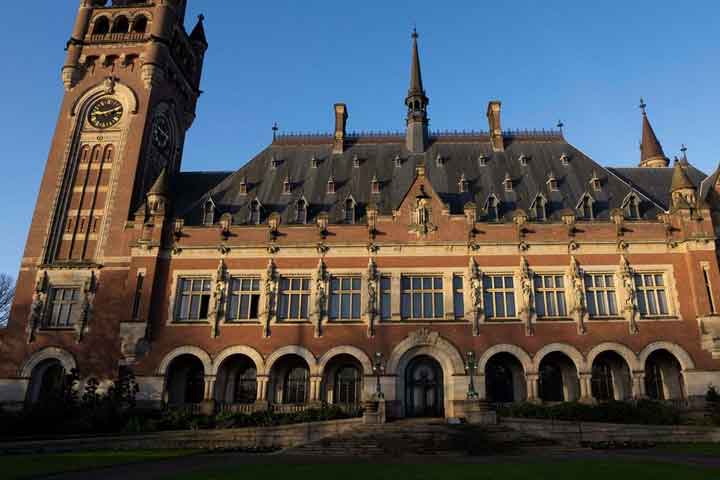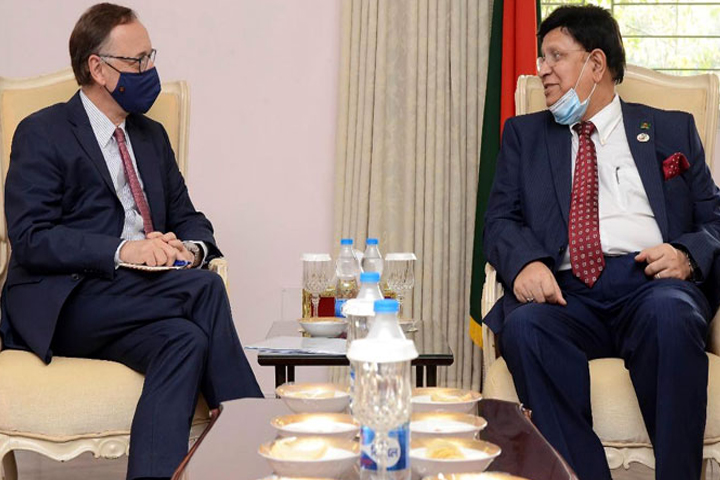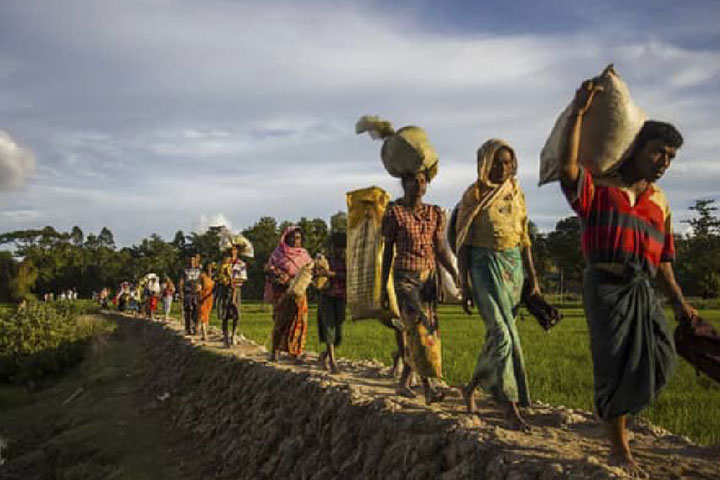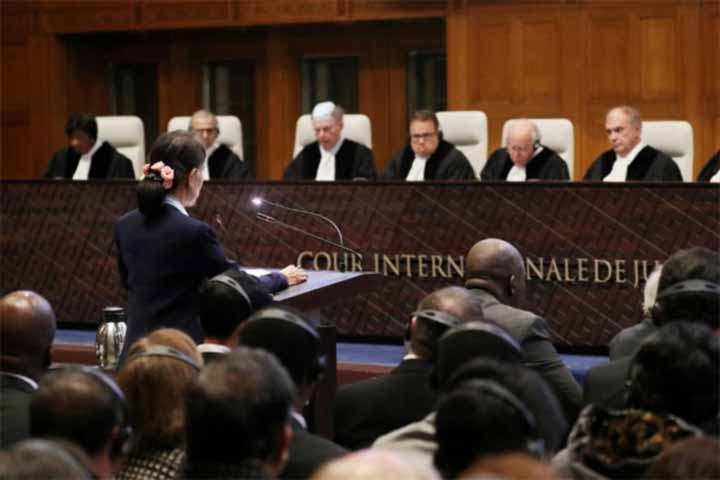Genocide in Myanmar: ICJ to deliver order Thursday
The International Court of Justice (ICJ), the principal judicial organ of the United Nations, will deliver its order on the request for the indication of provisional measures made by The Gambia in the case concerning the Genocide Convention against Myanmar.
A public sitting will take place at 10am at the Peace Palace in The Hague, during which Judge Abdulqawi Ahmed Yusuf, President of the Court, will read the Court’s order, according to the ICJ.
In its first Genocide Convention case, the ICJ imposed provisional measures against Serbia in 1993 and eventually found that Serbia had violated its duty to prevent and punish genocide in Bosnia-Herzegovina, according to Human Rights Watch (HRW).
Canada, Bangladesh, Nigeria, Turkey, and France have asserted that Myanmar committed genocide against the Rohingya.
The Organization of Islamic Cooperation (OIC) encouraged its 57 members to bring Myanmar before the court.
Malaysia’s Prime Minister has also alleged that Myanmar committed genocide against the Rohingya and called for efforts to bring Myanmar before the court, according to the HRW.
On November 11, The Gambia instituted proceedings against Myanmar before the ICJ alleging violations of the Convention on the Prevention and Punishment of the Crime of Genocide through “acts adopted, taken and condoned by the Government of Myanmar against members of the Rohingya group”.
Specifically, The Gambia argued that from around October 2016 the Myanmar military and other Myanmar security forces began widespread and systematic ‘clearance operations’ - the term that Myanmar itself uses against the Rohingya group.
The genocidal acts committed during these operations were intended to destroy the Rohingya as a group, in whole or in part, by the use of mass murder, rape and other forms of sexual violence, as well as the systematic destruction by fire of their villages, often with inhabitants locked inside burning houses, according to an official document.
From August 2017 onwards, such genocidal acts continued with Myanmar’s resumption of ‘clearance operations’ on a more massive and wider geographical scale.”
The Gambia contends that these acts constitute violations of the Genocide Convention and it has made this claim known to Myanmar since September 2018, but that Myanmar has continued to deny any wrongdoing.
The Gambian application also contains a request for the indication of provisional measures, seeking to protect the rights of the Rohingya group.
The Gambia asked the Court to indicate some provisional measures including Myanmar should immediately take all measures within its power to prevent all acts that amount to or contribute to the crime of genocide, including taking all measures within its power to prevent the following acts from being committed against member of the Rohingya group.
Myanmar should not destroy or render inaccessible any evidence related to the events described in the application, including without limitation by destroying or rendering inaccessible the remains of any member of the Rohingya group who is a victim of alleged genocidal acts, or altering the physical locations where such acts are alleged to have occurred in such a manner as to render the evidence of such acts, if any, inaccessible, the document reads.
Yanghee Lee’s Final Mission
The Special Rapporteur on the situation of human rights in Myanmar Yanghee Lee concludes her final mission on Thursday that she has been carrying out from January 15.
Lee, who visited Rohingya camps in Cox’s Bazar district this time too, will hold a press conference at 1pm in a city hotel.
Bangladesh is now hosting over 1.1 million Rohingyas.
Lee will report to the Human Rights Council session in March this year, said an official.
Despite her last request to visit Myanmar being denied by the government, Lee visited Thailand and Bangladesh to speak to interlocutors and receive information about the situation in Myanmar from both sides of the border.
“Myanmar’s denial of access has not dissuaded me from doing everything I can to impartially report to the international community accurate first-hand information that has been provided to me during my visits to the region,” Lee said.
She said her mission and the end of her tenure come at a critical time for human rights in Myanmar. "I’ll continue to strive to do my utmost to improve the situation.”
Lee has held the mandate of Special Rapporteur since 2014 and enjoyed biannual visits to the country until she was denied entry from December 2017, according to a message received from Geneva.
On the other hand, the Centre for Genocide Studies (CGS), Dhaka University (DU) will hold a panel discussion on "ICJ Ruling on the Provisional Measures on Rohingya Genocide” on Thursday evening in the city.
Foreign Secretary Masud Bin Momen will attend the discussion as the chief guest. Director, Centre for Genocide Studies and Prof of International Relations, DU Dr Imtiaz Ahmed will also be present.
Source: UNB
AH
22 Jan 2020,21:27




















 Live Tv
Live Tv



